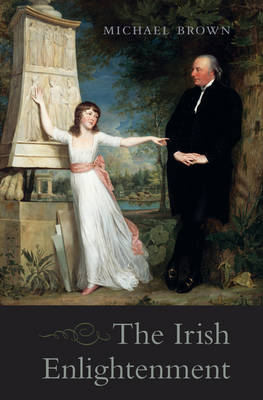Scotland and England produced many well-known intellectuals during the Enlightenment, but Ireland's contribution to this revolution in Western thought has received less attention. The Irish Enlightenment considers a range of artists, writers, and philosophers who were full participants in the pan-European experiment that forged the modern world. John Toland, Francis Hutcheson, Jonathan Swift, George Berkeley, Edmund Burke, and Maria Edgeworth are among the Irish luminaries who participated in debate about the capacity of humans to use reason and independent thinking to create a just society. In a nation recovering from confessional warfare, religious questions loomed large. How should the state be organized to allow contending Christian communities to worship freely? Was the public confession of faith compatible with civil society? In a society shaped by opposing religious beliefs, who is enlightened and who is intolerant? The Irish Enlightenment opened up the possibility of a tolerant society, but it was short-lived.
Divisions concerning methodological commitments to empiricism and rationalism resulted in an increasingly antagonistic conflict over questions of religious inclusion. By the end of the eighteenth century, Michael Brown shows, Ireland again entered a dark period of unrest whose effects were still evident in the late twentieth century.
- ISBN13 9780674968639
- Publish Date 24 May 2016 (first published 28 April 2016)
- Publish Status Active
- Publish Country US
- Imprint Harvard University Press
- Format eBook
- Pages 560
- Language English
- URL http://degruyter.com/search?f_0=isbnissn&q_0=9780674968639&searchTitles=true
